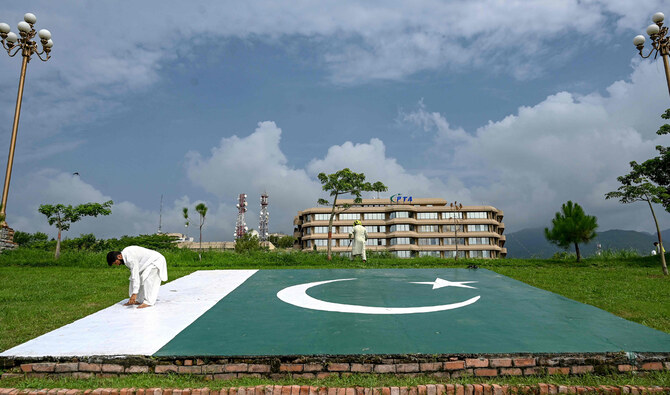KARACHI: Pakistan’s ongoing internet crisis, marked by soaring costs and sluggish speeds, stems from structural issues in which two operators control the gateway to global connectivity, the country’s internet service providers’ association said this week.
Pakistan is heavily reliant on digital connectivity for economic growth. However, the Wireless and Internet Service Providers Association of Pakistan (WISPAP) said in a statement users were getting an average speed of just 20-30 megabits per second (Mbps), which was significantly lower than that of countries like Bangladesh in the region where speeds reach 50 Mbps, despite Pakistanis paying nearly twice as much for the service.
WISPAP warned against the “near-duopoly” of Pakistan Telecommunication Company Limited (PTCL) and Transworld Associates (TWA), saying it had led to monopolistic pricing, restricting competition and keeping internet services expensive and inefficient.
Its assertion comes as Africa-1, a new undersea cable system, recently landed in Pakistan, promising additional bandwidth, though the association said it would only benefit the two existing gatekeepers of global connectivity.
“Ban gatekeepers from overcharging or locking out rivals,” the statement prepared on Tuesday quoted Shahzad Arshad, WISPAP chairman, as saying. “Fair rules mean fair rates.”
Pakistan’s internet infrastructure is centered around Karachi, where PTCL and TWA manage the country’s seven undersea fiber-optic cable connections and two smaller overland links.
Arshad noted the lack of competition allows these operators to set high prices for bandwidth, which internet service providers (ISPs) must purchase before distributing internet services to consumers.
WISPAP also proposed policy recommendations, including creating a second internet gateway in Gwadar, saying it would reduce broadband costs by 30 percent in five years.
“Invite new operators, local or foreign, with tax breaks,” its chairman suggested. “PTCL and TWA will have to fight for customers, not just cash them out.”
Additionally, the group urged regulators to follow Malaysia’s model of negotiating bandwidth in local currency, shielding ISPs from volatile exchange rates.
“Cut the dollar leash, and ISPs save 20% overnight,” Arshad said. “That’s cheaper Wi-Fi for every household.”
Pakistan’s internet crisis has far-reaching consequences for businesses, impacting sectors such as e-commerce, fintech and freelancing. The country’s freelance industry, which generated $1.2 billion in 2024, is particularly vulnerable to unreliable connectivity.
WISPAP estimates that affordable, high-speed internet could double freelancing revenue to $2.5 billion by 2030, while also bringing 10 million more Pakistanis online.
















